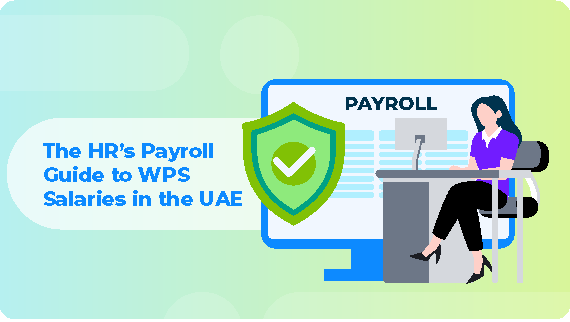Are you a business owner or employer in the UAE looking to navigate the intricate web of WPS salary payments? Understanding the Wage Protection System is crucial for ensuring compliance and smooth operations. In this guide, we’ll break down the essentials of WPS to help you see the advantages of WPS adoption.
Getting a clear understanding of this system is imperative for companies to ensure compliance with the UAE laws, foster a harmonious work environment, safeguard the rights of their employees, and to stay on top of your payroll responsibilities.
What is the Wage Protection System (WPS)?
The Wage Protection System was introduced by the UAE Ministry of Human Resources and Emiratisation (MOHRE) in May 2009, to ensure that employees receive their salaries on time and in full. This initiative is part of the UAE government’s commitment to enhancing transparency and accountability in the labour market and is applicable to all entities operating in the private sector, regardless of their size or industry.
How does WPS work?
Under the WPS laws, employers are required to pay their employees through Ministry-approved digital mediums or financial institutions. This process involves the electronic transfer of funds directly into employees’ bank accounts or through accredited WPS channels, thereby providing a streamlined, secure, and transparent mechanism for salary transfers in the country.
- Register: Employers must register with the WPS platform through approved financial institutions or service providers.
- Upload Employee Data: Input correct and complete employee details, including their bank account information and deductions, into the WPS system.
- Initiate Salary Payments: Ensure timely and accurate salary payments through the WPS portal or authorised channels.
- Generate Reports: Periodically generate WPS reports to reconcile salary payments and maintain records.
Key Benefits of WPS for Employers
While navigating the intricacies of the Wage Protection System may seem daunting, its adoption will surely bring a series of benefits for employers and businesses, irrespective of your industry or company size:
1) Transparency: WPS promotes enhanced transparency in salary payments by creating a digital trail of transactions. This not only protects the interests of employees, but also reduces the scope for disputes or discrepancies.
2) Legal compliance: By embracing WPS, employers are essentially aligning their practices with the UAE labour laws. This protects the interests of employees and also shields the employers from any legal repercussions.
3) Credibility: Adhering to WPS regulations enhances the credibility of a business in the eyes of employees, clients, and stakeholders. It signifies a commitment to fair labour practices, and this bolsters the reputation of a company in the competitive business landscape.
4) Efficiency: By automating salary payments, WPS streamlines payroll processes, saving companies time and resources, especially in case of lean HR/financial teams.
5) Improved employee relationships: Timely and secure salary payments contribute significantly to employee satisfaction and morale. This, in turn, fosters a positive workplace culture, improves retention rates, and enhances productivity, leading to improved quality of working relationships.
En bref
Navigating the Wage Protection System is essential for employers in the UAE to uphold labour regulations and maintain trust with their workforce. By understanding the key principles and implementing best practices, businesses can streamline salary management processes and foster a culture of compliance and transparency.
👉🏼 Looking to get in touch with a MOHRE-approved payroll card provider? Looking for information related to salary processing, employee management, payroll cards, WPS, or any aspect of the payroll process in UAE, feel free to reach out to us on info.ae@edenred.com





